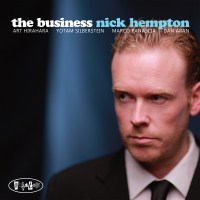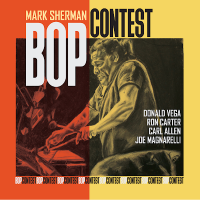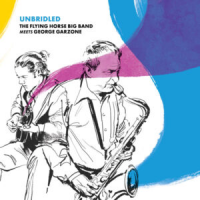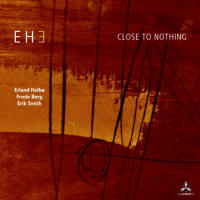Home » Jazz Articles » Album Review » Rich Halley Quartet: Requiem for a Pit Viper
Rich Halley Quartet: Requiem for a Pit Viper
Halley has found another horn man who can keep up with his steroidal attack in trombonist Michael Vlatkovich, on Requiem for a Pit Viper. Like Halley, Vlatkovich is bold and virtuosic and player, and no stranger to the trio concept—unusually, for a trombonist. His superbly freewheeling Queen Dynamo (Origin Records, 2004) placed him front and center with bass and drums, proving that the big horn isn't necessarily a low end harmony tool for larger ensembles.
Requiem for a Pit Viper opens with the roaring title track, as Halley and Vlatkovich bounce brash ideas off of each other, creating muscular melodic moments augmented by Clyde Reed's powerful bass and Carson Halley's heavy metal drumming. For free jazz, it is surprisingly catchy; a madcap army march that seems designed to pump up a maniacal troop force for the assault of enemy territory, where the plan is to take absolutely no prisoners. Reed and Carson Halley tighten the sound behind Vlatkovich's contained—relative to the opening salvo—trombone solo, leading into Reed's guitar-like bass turn, before sax and trombone blow back in, brasher than ever.
Halley's artistry—in spite of his muscularity and moments of raw, screaming power—can also be quite restrained, in a searing, bebop, too-hot-to-touch-the-horn way. His extended solo on "Snippet Stop Warp" could fit in the middle of a free-swinging version of an up-tempo Great American Songbook standard without sounding too "out there," with some very intricate, even subtle, but always vivid moments.
The brief "Maj" sounds particularly feral, with Halley and Vlatkovich giving the impression of a grizzly bear and a badger circling each other in growling, snarling contemplation of a fight to the death, until they call it a standoff and wind down to fight another day. "Wake Up Line" is eight minutes of serious bombast underlain by an implacable rhythm—Reed rock solid, Carson Halley doing an energetic rattle and roll.
The music's appeal is its unusual and engaging mixture of structure and freedom—sometimes very wild freedom. More than a decade into an always gripping effort to perfect his singular, adventurous, often torrid free bop small ensemble sound, Rich Halley sounds supremely-inspired by the company he is keeping, and he may have made his best CD to date with Requiem for a Pit Viper.
Track Listing
Requiem for a Pit Viper; Snippet Stop Warp; View from the Underpass; Circumambulation; Purple and Gray; Maj; Wake Up Line; Squeaker; Subterranean Strut; Afternoon in June.
Personnel
Rich Halley
saxophone, tenorRich Halley: tenor saxophone, percussion; Michael Vlatkovich: trombone, percussion, squeak toys; Clyde Reed; bass; Carson Halley: drums, percussion.
Album information
Title: Requiem For A Pit Viper | Year Released: 2011 | Record Label: Pine Eagle Records
Tags
PREVIOUS / NEXT
Rich Halley Concerts
Support All About Jazz
 All About Jazz has been a pillar of jazz since 1995, championing it as an art form and, more importantly, supporting the musicians who make it. Our enduring commitment has made "AAJ" one of the most culturally important websites of its kind, read by hundreds of thousands of fans, musicians and industry figures every month.
All About Jazz has been a pillar of jazz since 1995, championing it as an art form and, more importantly, supporting the musicians who make it. Our enduring commitment has made "AAJ" one of the most culturally important websites of its kind, read by hundreds of thousands of fans, musicians and industry figures every month.






















